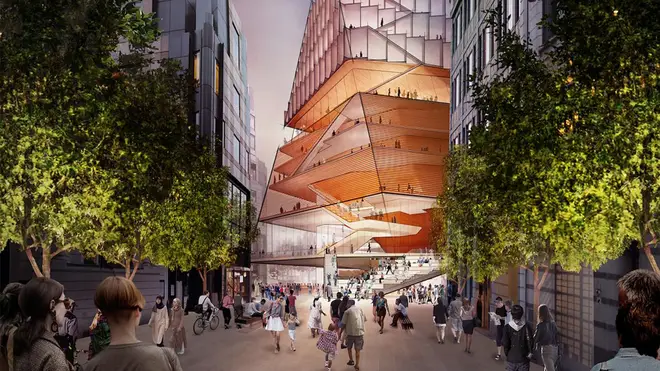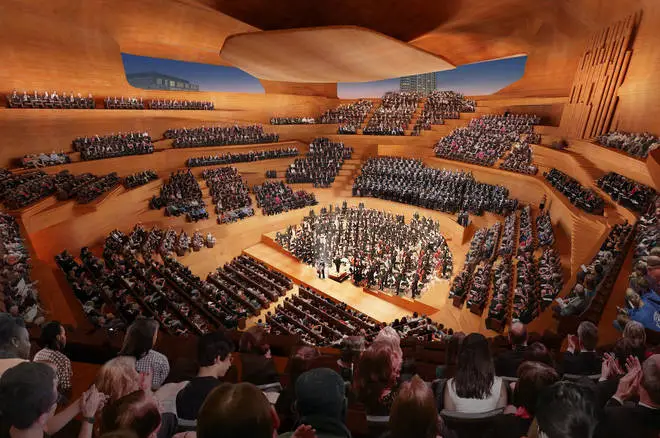On Air Now
Relaxing Evenings with Zeb Soanes 7pm - 10pm
19 February 2021, 10:37 | Updated: 23 February 2021, 09:59

Plans for a 2,000-seat concert hall in England’s capital have been axed due to the impact of COVID-19.
“Ambitious” plans for a new London concert hall have been scrapped, as the City of London Corporation said the impact of the pandemic made it impossible to complete.
London’s £288m Centre for Music, which promised a 2,000-seat concert hall, state-of-the-art acoustics, a jazz venue overlooking St Paul’s Cathedral, and commercial spaces, was portrayed by the Barbican as “the Tate Modern of classical music”.
“The City Corporation has confirmed that, given the current unprecedented circumstances, its ambitious plans for a Centre for Music will not be progressed,” a spokesperson said.
“Alternative proposals for the site, currently occupied by the Museum of London, will be brought forward over the coming months.”
While the Barbican would have run the venue, it would have been a joint project with the London Symphony Orchestra and Guildhall School of Music and Drama, and formed a new gateway to the city’s planned Culture Mile.
Kathryn McDowell, managing director of the London Symphony Orchestra, said: “While we are naturally disappointed, we fully understand the City’s decision as it is clearly very difficult to advance a project such as this at this time.”
Read more: Designs for £288m London concert hall shown in new animation >

WATCH: First concept designs released for London's Centre for Music project
Concept designs for the venue were released in January 2019 by New York-based architects Diller Scofidio + Renfro, who have previously renovated New York’s Juilliard School and the Lincoln Center for the Performing Arts.
By welding the architects’ vision with that of London’s three leading musical institutions, it was hoped the designs could be animated into a leading venue for musical performance and education.
Throughout, the venue had struggled to get government funding, relying on the City’s £2.49m boost, plus a later pledged £1.95m, to get off the ground. Those opposed to the project, including musical and government figures, have always questioned why London needs a new multi-million pound concert hall.
Others argued that London’s venues, from the Royal Festival Hall and Royal Albert Hall to the Barbican itself, don’t have acoustics to measure up to venues like Birmingham’s Symphony Hall, and great European halls such as Berlin’s Philharmonie.
LSO’s music director Sir Simon Rattle, a major champion for the project, said the new build would depict London “as a dynamic cultural city, at a time when we are going to need this more and more.”
The concert hall was immediately thrown into question after Rattle recently announced he would be stepping down from the British orchestra and moving to Munich’s Bavarian Radio Symphony Orchestra.
Read more: Mirga Gražinyte-Tyla quits City of Birmingham Symphony Orchestra >

In its announcement, the City also committed to renewing its funding for arts and culture in London. It announced a new grant for the LSO, and said it will upgrade the Barbican’s “40-year-old complex” to create new spaces and expand its digital offering.
The City said the search for a world-class team to lead the architectural project will begin later this year.
Kathryn McDowell said the City’s funding “demonstrates their confidence in our ability to adapt to the fundamental changes facing the performing arts”.
“These financial foundations along with the LSO Recovery Appeal Funds will help us plan our future in the post pandemic, post Brexit world,” she added.
Managing Director of the Barbican Centre, Sir Nicholas Kenyon echoed McDowell’s statement, saying: “New times need new solutions.”